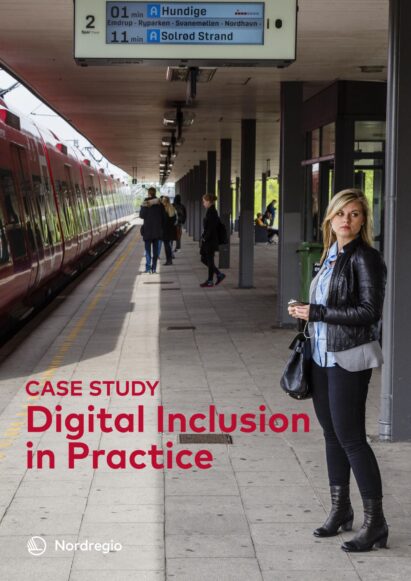The digital transformation in public services has changed how citizens use essential services. In many Nordic and Baltic countries, there is a lack of understanding of the effectiveness of digital inclusion initiatives. This case study collects learnings from Denmark’s public transport system, which has worked ambitiously with inclusion. It highlights best practices in digital inclusion, that can benefit similar initiatives across the Nordic-Baltic region.
Rejsekort & Rejseplan A/S (RK), Denmark’s national e-ticketing system for public transport, launched a new app-based solution as part of its broader digitalisation strategy. In this case study, we examine RK’s journey in balancing digital innovation with the imperative of digital inclusion. The results showed that achieving digital inclusion requires a nuanced strategy, and in this case, including a physical alternative solution addressing the needs of vulnerable user groups, including older adults and people with disabilities.
Lessons included building on existing knowledge on digital inclusion, maintaining continuous user involvement, conducting pilot testing, and ensuring inclusion across the entire user journey. Additionally, RK’s experience demonstrates the importance of internal organisational readiness and the need to balance technological innovation with user needs. Lastly, without sustained leadership focus, these initiatives risk losing internal traction. This case study offers valuable lessons for other Nordic and Baltic organisations, especially as they navigate similar digitalisation and transformation projects.





